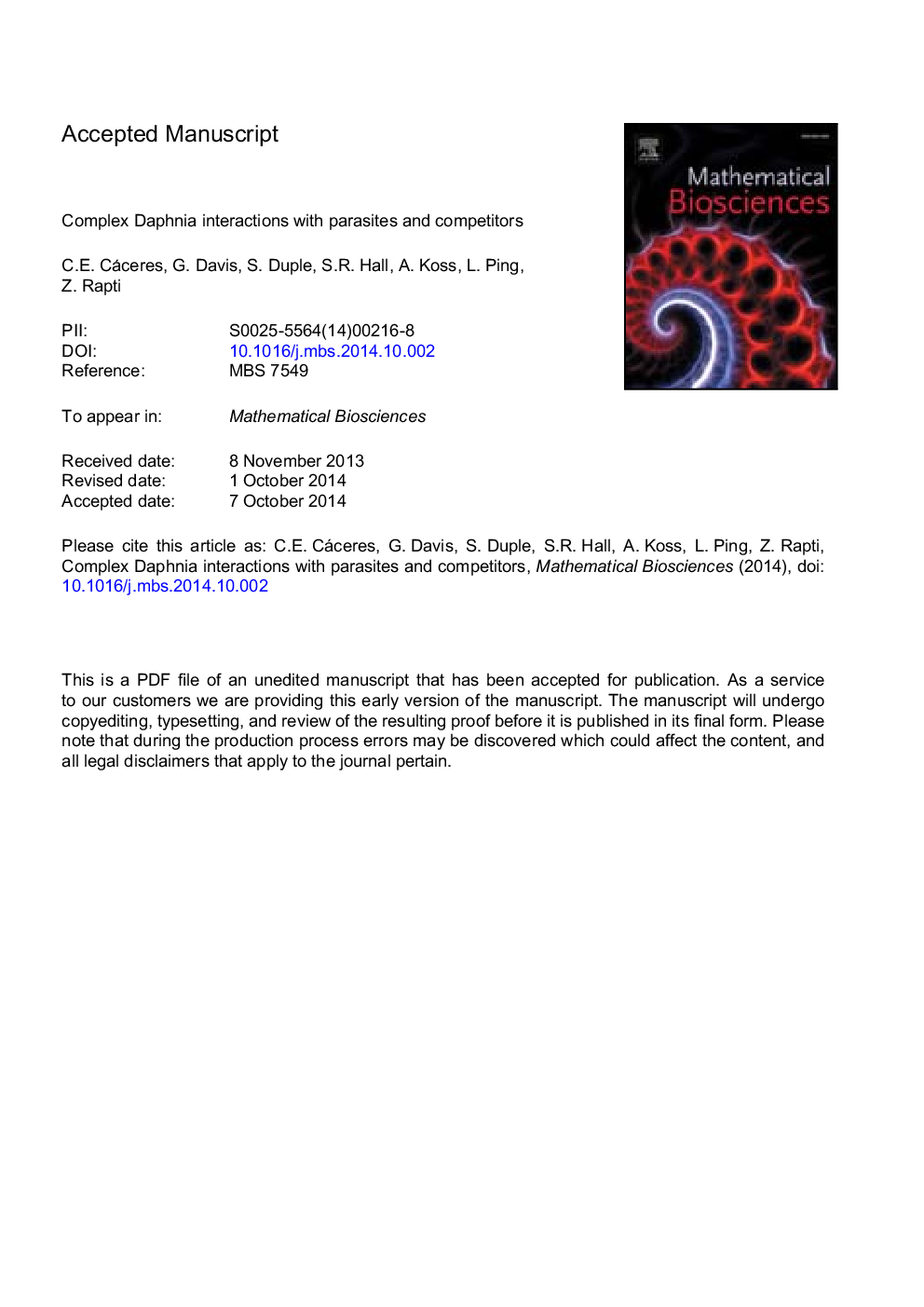| Article ID | Journal | Published Year | Pages | File Type |
|---|---|---|---|---|
| 6372033 | Mathematical Biosciences | 2014 | 32 Pages |
Abstract
Species interactions can strongly influence the size and dynamics of epidemics in populations of focal hosts. The “dilution effect” provides a particularly interesting type of interaction from a biological standpoint. Diluters - other host species which resist infection but remove environmentally-distributed propagules of parasites (spores) - should reduce disease prevalence in focal hosts. However, diluters and focal hosts may compete for shared resources. This combination of positive (dilution) and negative (competition) effects could greatly complicate, even undermine, the benefits of dilution and diluter species from the perspective of the focal host. Motivated by an example from the plankton (i.e., zooplankton hosts, a fungal parasite, and algal resources), we study a model of dilution and competition. Our model reveals a suite of five results:
Related Topics
Life Sciences
Agricultural and Biological Sciences
Agricultural and Biological Sciences (General)
Authors
C.E. Cáceres, G. Davis, S. Duple, S.R. Hall, A. Koss, P. Lee, Z. Rapti,
